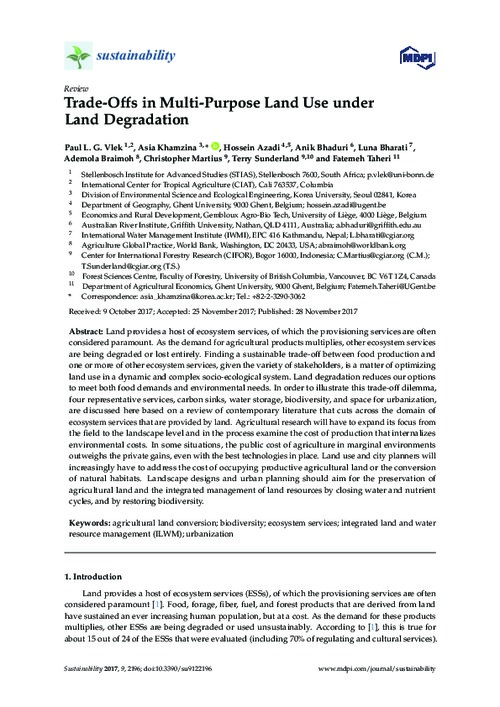Resource information
Land provides a host of ecosystem services, of which the provisioning services are often
considered paramount. As the demand for agricultural products multiplies, other ecosystem services
are being degraded or lost entirely. Finding a sustainable trade-off between food production and
one or more of other ecosystem services, given the variety of stakeholders, is a matter of optimizing
land use in a dynamic and complex socio-ecological system. Land degradation reduces our options
to meet both food demands and environmental needs. In order to illustrate this trade-off dilemma,
four representative services, carbon sinks, water storage, biodiversity, and space for urbanization,
are discussed here based on a review of contemporary literature that cuts across the domain of
ecosystem services that are provided by land. Agricultural research will have to expand its focus from
the field to the landscape level and in the process examine the cost of production that internalizes
environmental costs. In some situations, the public cost of agriculture in marginal environments
outweighs the private gains, even with the best technologies in place. Land use and city planners will
increasingly have to address the cost of occupying productive agricultural land or the conversion
of natural habitats. Landscape designs and urban planning should aim for the preservation of
agricultural land and the integrated management of land resources by closing water and nutrient
cycles, and by restoring biodiversity.



